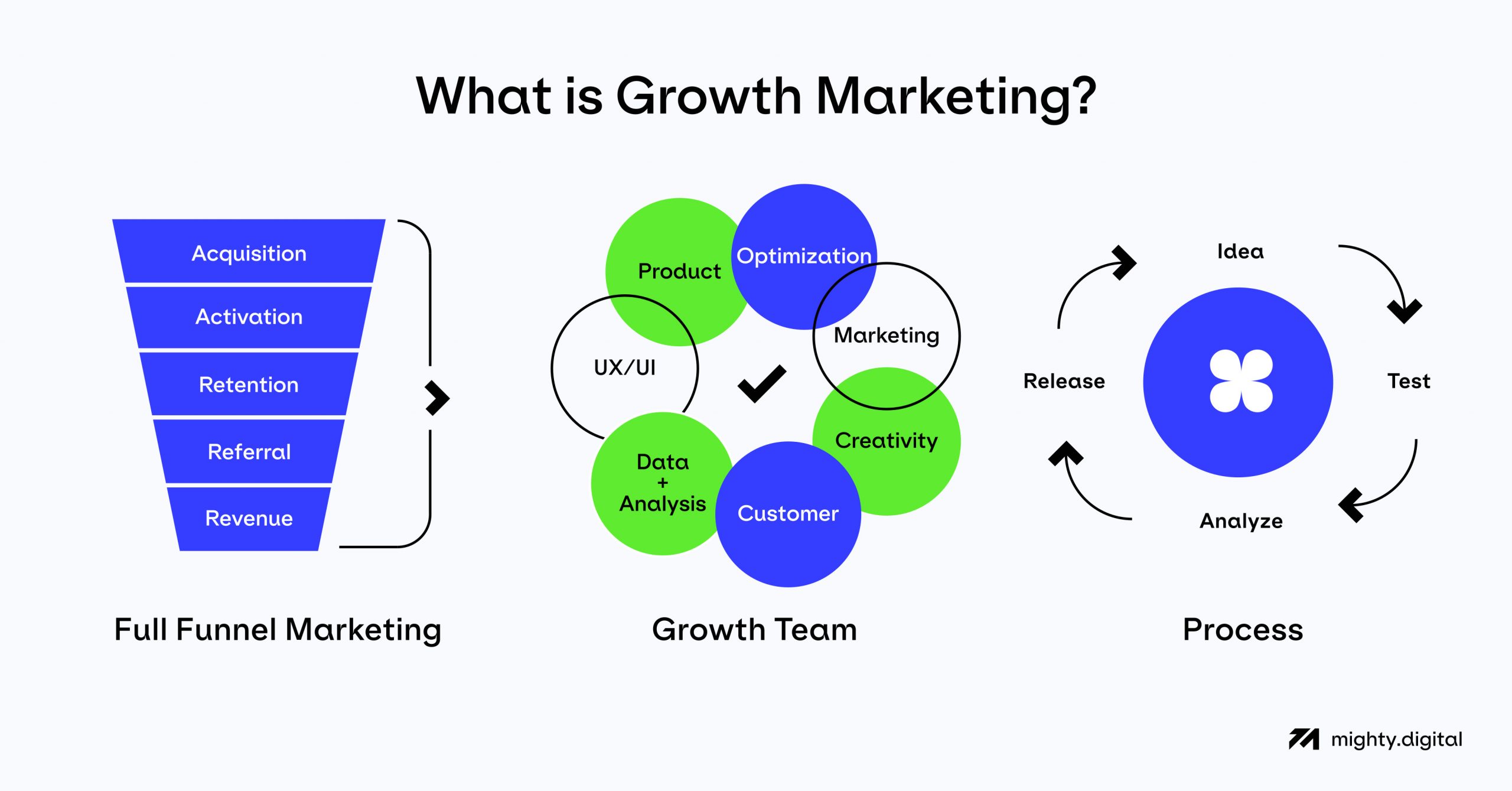Growth Marketing
What is Growth Marketing?
Definition:
Growth Marketing refers to a strategic approach focused on driving sustainable business growth through the implementation of data-driven marketing tactics. It goes beyond traditional marketing by combining elements of product development, customer experience, and data analytics to identify and exploit opportunities for expansion. Growth marketers employ experimentation, iterative testing, and optimization to achieve measurable and scalable results.
Analogy:
Imagine growth marketing as the engine that propels a rocket into space. Just as a powerful and precisely calibrated engine is crucial for propelling a rocket to new heights, growth marketing provides the dynamic force needed to propel a business toward sustained and scalable growth.
Further Description:
Growth marketing encompasses various key components:
Data-Driven Decision Making: Growth marketing relies on data analysis to inform decision-making. Marketers use analytics tools to understand user behavior, identify trends, and make informed adjustments to campaigns.
Customer Lifecycle Focus: Rather than focusing solely on acquiring new customers, growth marketing considers the entire customer lifecycle. This includes customer retention, upselling, and turning satisfied customers into advocates.
Experimentation and A/B Testing: Growth marketers constantly experiment with different strategies, channels, and messaging to identify what resonates best with their audience. A/B testing is a common practice to optimize campaigns based on real-time performance data.
Cross-Channel Marketing: Growth marketing involves utilizing multiple channels, such as social media, content marketing, email, and paid advertising, to create a cohesive and comprehensive strategy for reaching and engaging the target audience.
User Acquisition and Retention: While acquiring new users is important, growth marketing emphasizes retaining existing users. Strategies for user retention include personalized communication, loyalty programs, and continuous value delivery.
Product-Led Growth: Integrating product development with marketing efforts is a key aspect of growth marketing. This involves creating products and features that inherently drive user acquisition and retention.
Why is Growth Marketing Important?
Scalability: Growth marketing is designed for scalability, allowing businesses to expand their customer base and revenue without linear increases in marketing costs.
Measurable Results: The data-centric approach of growth marketing enables marketers to measure and attribute results accurately. This leads to better-informed decisions and optimization of marketing strategies.
Adaptability: Growth marketing embraces an agile mindset, adapting quickly to changing market conditions, consumer behaviors, and emerging trends.
Holistic Approach: By considering the entire customer lifecycle, growth marketing fosters long-term relationships with customers, maximizing lifetime value and reducing dependency on constant acquisition efforts.
Examples and Usage:
Dropbox: Dropbox achieved substantial growth through a referral program that rewarded users for referring friends. This not only acquired new users but also encouraged existing users to stay and engage with the platform.
Airbnb: Airbnb’s growth marketing strategies included leveraging user-generated content, referral programs, and localized marketing to expand its user base globally.
Spotify: Spotify’s growth marketing tactics involve personalized recommendations, collaborative playlists, and free trial offers, enticing users to subscribe and stay engaged with the platform.
Key Takeaways:
- Base marketing decisions on data analysis and insights to drive strategic growth.
- Consider the entire customer journey, from acquisition to retention, to maximize long-term value.
- Constantly test and optimize strategies to identify the most effective approaches for growth.
- Utilize various marketing channels cohesively to create a comprehensive and effective growth strategy.
- Prioritize both acquiring new users and retaining existing ones for sustained growth.
- Align product development with marketing efforts to create a holistic approach that inherently drives growth.
- Design marketing strategies that can scale efficiently as the business grows.
- Focus on metrics and analytics to measure the success of marketing efforts accurately.
- Embrace an agile mindset to adapt quickly to changes in the market and consumer behavior.
- Foster long-term customer relationships by considering the entire customer lifecycle.





